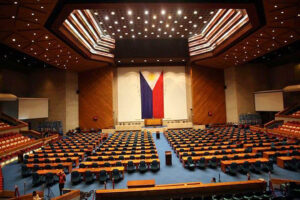AMENDING the economic provisions of the constitution will address a number of “uncertainties” that concern foreign investors, the Foundation for Economic Freedom (FEF) said.
“We believe that foreign investors have long been discouraged by long-term uncertainty. The uncertainty in our economic policy framework stems from the contradiction between the restrictive provisions in our Constitution and the attempts to mitigate them through legislation,” it said in a statement on Tuesday.
In March, a bill seeking to lift foreign ownership limits in the 1987 Philippine Constitution was approved on third and final reading by the House of Representatives.
The FEF said that pending legislation seeking to amend the constitution’s economic provisions will “provide certainty to the country’s economic policy direction.”
The statement was issued in response to a paper by the University of the Philippines School of Economics (UPSE).
The FEF said that the paper “fails to take into consideration the long history of anti-foreign direct investment (FDI) policies in our 1935, 1973, and 1987 Constitutions, which have all espoused the protectionist economic model.”
“Given the state of our economy vis-à-vis our neighbors who have taken a more liberal route, the model has clearly failed. Likewise, the factors affecting FDI are complex, including the country’s history of xenophobic economic policies and protectionist elite politics,” it added.
The FEF noted the UPSE paper’s argument that reducing equity restrictions have no significant impact on FDI inflows.
“The paper makes a reasonable observation that the factors affecting FDIs are complex, context-dependent, and are subject to other factors such as corruption, infrastructure and regulatory regimes. Corruption and infrastructure gaps could very well be more significant turn offs for foreign investors, and there’s no denying the need to undertake arduous reforms in these areas, not just for FDI, but also for stronger overall economic performance,” it said.
“This, however, does not rule out the need for reducing restrictions on foreign equity. The studies mentioned in the paper showed that the coefficient of FDI regulatory restrictiveness is significantly different from zero and this warrants the need to address this variable as part of economic liberalization,” it added.
It also noted that there is a “critical mass of reforms” needed to attract more foreign investment.
“We believe that removing the restrictions is a necessary condition since we have to open the door first for investors to be able to come in. For foreign businesses to benefit from better institutions and processes, they must enter the country first,” the FEF said.
“Removing these anti-FDI provisions in the Constitution will signal our openness to foreign investment,” it added. — Luisa Maria Jacinta C. Jocson
